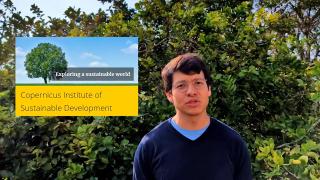New approaches for cancer hazard assessment
Chemical substances are subjected to assessment of genotoxic and carcinogenic effects before being marketed to protect man and the environment from health risks. For cancer hazard assessment, the long-term rodent carcinogenicity study is the current mainstay for the detection of nongenotoxic carcinogens. However, carcinogenicity studies are shown to have prominent weaknesses and are subject to ethical and scientific debate. A transition toward a mechanism-based weight of evidence approach is considered a requirement to enhance the prediction of carcinogenic potential for chemicals. At RIVM, we are working on this alternative approach for cancer hazard assessment, which makes optimal use of innovative (computational) tools and be less animal demanding.
For more information, click on the link in the video or read on here and here.
Contact the expert
New

TPI.tv: improving science through animal-free innovations and research

Five simple tricks for making your own video for TPI.tv

User Research in developing the virtual human platform
